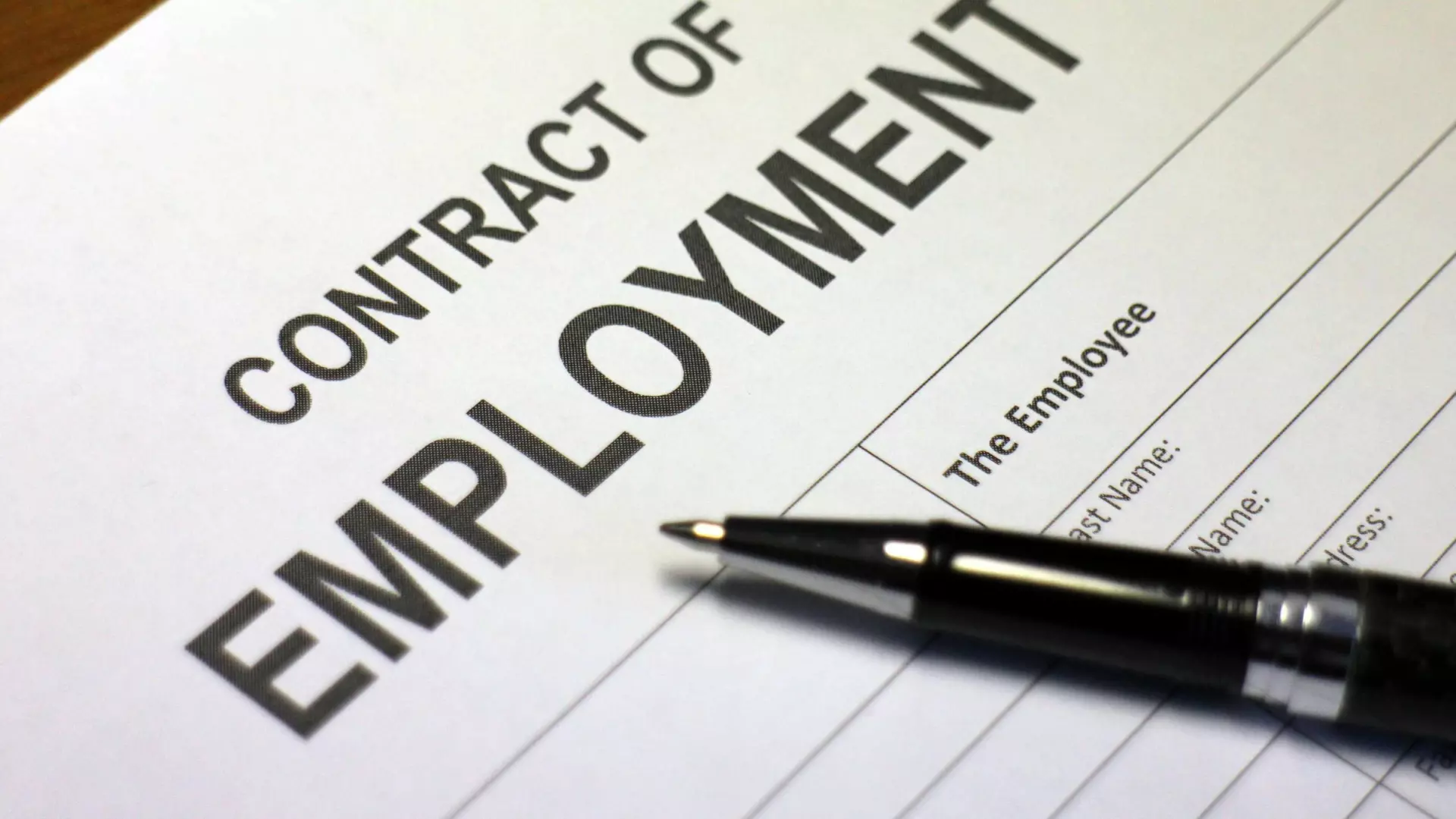Article
Employment Contracts for Nannies in New Zealand: What to Include (and What to Avoid)

Why an Employment Contract is Essential for Your Nanny
Whether your nanny works five days a week or just the occasional afternoon, every nanny in New Zealand must have a written employment agreement. It's not just best practice it’s a legal requirement under the Employment Relations Act 2000. In most scenarios, nannies are employees not contractors which means they need an employment contract.
A well-drafted contract protects both the family and the nanny. It sets clear expectations, helps avoid misunderstandings, and ensures compliance with New Zealand employment law.
At Pay The Nanny, we know contracts can feel daunting, but we’re here to make it simple. Let’s walk through what you need to include and what to leave out.
What Should Be Included in a Nanny Employment Contract
Here are the key elements every employment agreement should contain:
1. Names of the Employer and Employee
Clearly list your full legal name(s) and the nanny’s name.
2. Job Title and Duties
Use a clear title like Nanny or In-home caregiver, and outline the general duties.
Example Duties:
- Preparing afternoon tea and simple meals
- School pickup and drop-off
- Supervising homework and reading
- Light tidying of play areas and children's laundry
3. Type of Employment
Specify whether the role is:
- Permanent (ongoing)
- Fixed-term (with a defined end date and reason)
- Casual (no guaranteed hours, work offered as needed)
Specify whether the role is:
- Permanent (ongoing)
- Fixed-term (with a defined end date and reason)
- Casual (no guaranteed hours, work offered as needed)
Example:
This is a fixed-term role, until Johnny starts kindy, from 1 August 2025 to 31 January 2026.
4. Hours of Work
Include:
- Start and finish times
- Days of the week
- Total hours per week
If there’s flexibility, note that too but be careful: "casual" doesn’t just mean flexible hours unless it's truly an on-call role.
Example Clause:
The Employee will work Monday to Thursday from 2:30pm to 6:30pm during school terms. Total hours are approximately 16 per week. Additional hours may be agreed from time to time and will be paid at the standard hourly rate.
5. Wages and Payment Details
State:
- Hourly rate (must be at least minimum wage)
- Pay cycle (weekly, fortnightly, etc.)
- Overtime or additional hours policy
- Method of payment
Example :
The Employee will be paid $28 per hour gross, on a weekly basis via direct deposit into the nominated bank account.
6. Public Holidays and Leave
In New Zealand, employee leave entitlements are governed by the Holidays Act 2003. Here's what should be included in the contract:
Annual Leave: Employees working regular hours are entitled to a minimum of four weeks' paid annual leave after 12 months of continuous employment. For casual employees or those with irregular hours, you can choose to pay out annual leave on a “pay-as-you-go” basis. This means an extra 8% of gross earnings must be added to their regular pay and clearly stated on the payslip. This option is only lawful for casual or genuinely fixed-term employees.
Sick Leave: Employees become entitled to 10 days of paid sick leave after six months of continuous employment. This applies to full-time, part-time, and casual employees (as long as the casual work is regular and ongoing). After that, sick leave entitlements renew annually. Unused sick leave can accumulate up to 20 days.
Public Holidays: Employees are entitled to 11 public holidays per year if the holiday falls on a day that would normally be a working day for them. If a nanny works on a public holiday, they must be paid time and a half, and in most cases, also receive an alternative holiday (paid day off).
Example Clause:
The Employee is entitled to four weeks of paid annual leave per year and 10 days of paid sick leave following six months of continuous employment. Public holidays will be observed and paid in accordance with the Holidays Act 2003.
7. KiwiSaver
The contract must state whether the employee is eligible for KiwiSaver and whether employer contributions will apply.
8. Notice Periods and Termination
Both you and your nanny should know:
- How much notice must be given to end the agreement
- Any probation period (if applicable)
- What happens in cases of misconduct or redundancy
9. Confidentiality and Privacy
This is particularly important in a home-based setting. Consider a clause to protect your family's privacy and your nanny’s too.
Example:
The Employee agrees to maintain confidentiality regarding all matters relating to the Employer’s household and children.
10. Health and Safety
You are responsible for providing a safe workplace under the Health and Safety at Work Act 2015, even if it’s your own home. Outline your commitment to safety.
What NOT to Include
Avoid clauses that breach NZ employment law, such as:
- Requiring unpaid "on-call" hours
- Denying rest or meal breaks
- Restrictive covenants that prevent the nanny from working elsewhere without valid reason
If in doubt, check with MBIE’s Employment Agreement Builder or let us do the heavy lifting for you.
Step-by-Step Checklist to Build Your Nanny Contract
Here's a simple step by step breakdown to make sure you've got everything covered on your nanny's employment contract:
1. Decide employment type: Permanent, fixed-term, or casual?
2. Write a clear job description
3. Define hours and pay
4. Include leave and public holiday entitlements
5. Confirm KiwiSaver and tax treatment
6. Add notice period and termination terms
7. Include clauses on privacy and safety
8. Review or get expert help
9. Sign the agreement and give both parties a copy
How Pay The Nanny Can Help
We know your time is limited, and legal documents aren’t everyone’s strength. That’s where we come in.
At Pay The Nanny, we can provide legally compliant, easy-to-edit employment contract templates tailored for:
- Permanent nannies
- Fixed-term placements (e.g. maternity cover)
- Casual carers (e.g. after-school or occasional work)
We also manage all your payroll obligations, from IRD reporting to leave management, so you can focus on your family while we handle the admin.
Need Help with a Nanny Contract?
Whether you’re hiring your first nanny or formalising an existing arrangement, get in touch with us at Pay The Nanny. We’ll help you draft a contract that ticks every box and keeps your household running smoothly.
Visit www.paythenanny.nz or email us at [email protected]

Employing a Nanny in New Zealand

2024 Guide to Au Pair Payroll in New Zealand

10 Kiwi Holiday Traditions to Share with Your Nanny

Is my Nanny a Contractor or an Employee?
